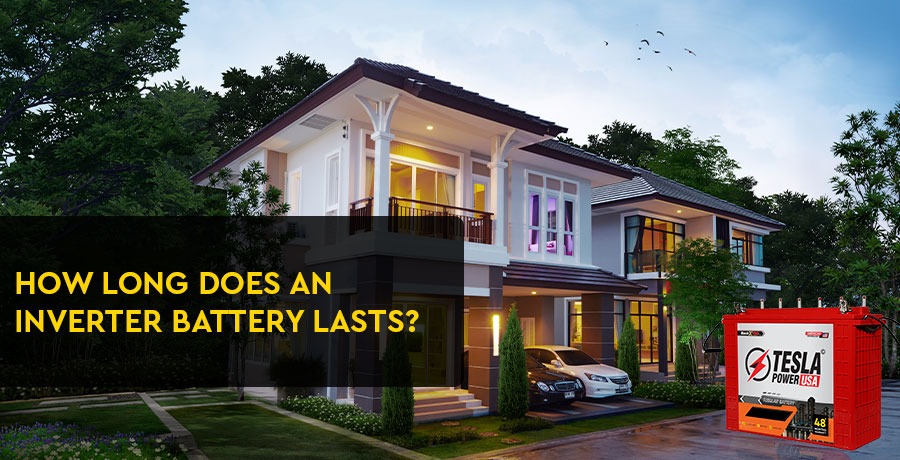Inverter batteries play a critical role in providing backup power during electricity outages, making them an essential component of home and office setups. However, like any other battery, they have a limited lifespan.
There are factors that influence the lifespan of inverter batteries and provide insights into how long they typically last.
-
Battery Type: The type of battery used in an inverter greatly affects its lifespan. There are primarily two types: lead-acid and lithium-ion.
a) Lead-acid batteries= These are more commonly used and have an average lifespan of 3 to 5 years.
b) Lithium-ion batteries= These are although more expensive and have a longer lifespan, typically ranging from 8 to 10 years. Choosing the right battery type based on your needs and budget is important. - Usage Patterns: The usage patterns of an inverter battery can significantly impact its lifespan. Batteries that are frequently discharged to a lower state of charge and then recharged tend to have a shorter lifespan. Conversely, batteries that are operated within their optimal state of charge and are not deeply discharged regularly can last longer. Proper maintenance and adhering to recommended charging and discharging practices can extend the life of the battery.
- Maintenance and Care: Regular maintenance and care are essential to ensure the longevity of inverter batteries. Keep the battery terminals clean and free from corrosion. Check the electrolyte levels in lead-acid batteries and top up with distilled water when necessary.
- Load and Capacity: The load placed on the inverter battery and its capacity also impact its lifespan. If the battery is constantly subjected to heavy loads or used beyond its rated capacity, it may wear out more quickly. It is crucial to select an inverter and battery combination that matches the power requirements of your appliances and devices to prevent excessive strain on the battery.
- Environmental Factors: Environmental conditions such as temperature and humidity can influence the lifespan of inverter batteries. High temperatures can accelerate the rate of battery degradation while extreme cold can reduce the battery's performance. It is advisable to keep the battery in a controlled environment, away from temperature extremes to optimise its lifespan.
The lifespan of inverter batteries varies depending on several factors, including the battery type, usage patterns, maintenance, load, capacity, and environmental conditions. By understanding these factors and adopting proper maintenance practices, you can maximise the lifespan of your inverter battery and ensure a reliable backup power supply for your home or office.






